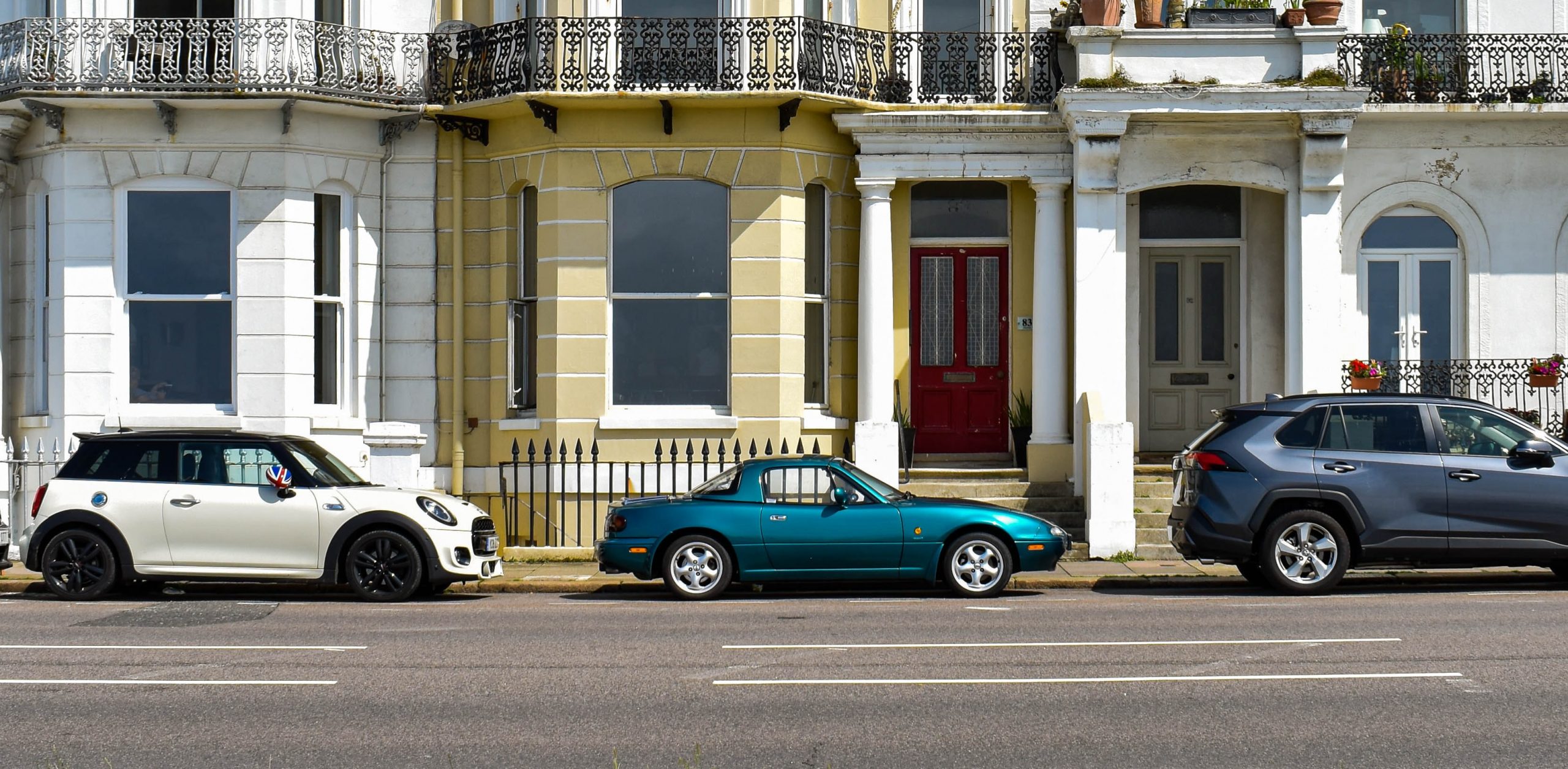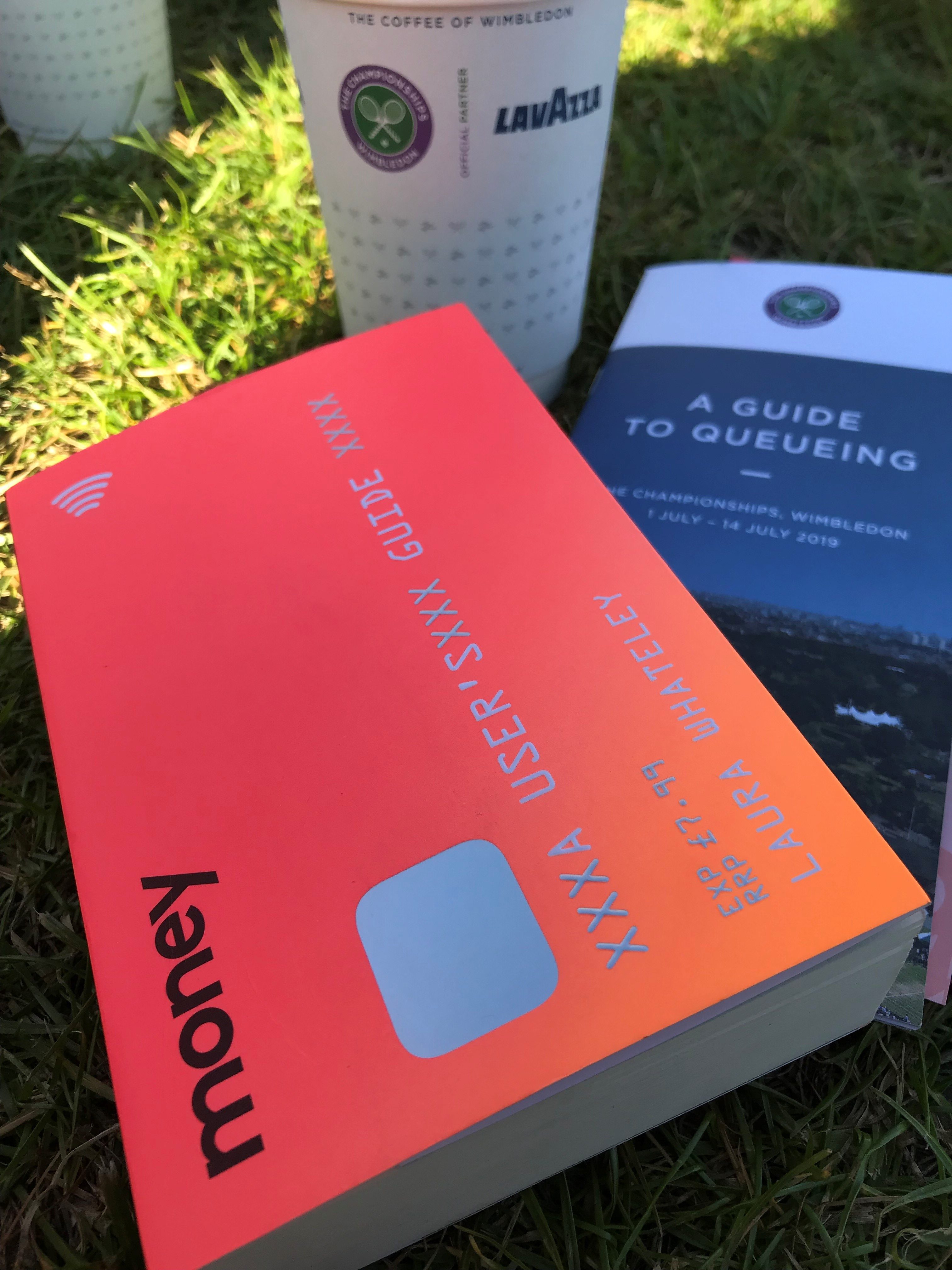Money. You never seem to have enough of it. When you do have some spare, it always disappears too quickly! Saving money for the future is something we should all be trying to do, but with temptations everywhere and emergencies to fund, it can be a struggle to stop spending money.
If you find that you’re simply spending money you don’t have, staying in an overdraft, or always having to put transactions on a credit card, you’re not alone in the boat. But you may have to challenge yourself in the future.
These tips can help show you how to stop spending money unnecessarily. Whether you need a few pointers to save a little more, or a guide to completely change your approach to spending, we’re here to help.
What's Included?
Plan, plan, plan
As with most things, you need to make a plan. Working out exactly where your money goes can help to identify where you may be going overboard.
Figure out how much of your money is spent on rent, bills and groceries, as well as non-essentials like clothes and eating out. Write it all up clearly, either on paper or on your computer. This can help identify where you should be making savings. The more detailed the outline, the more help it will be!
When you see how much you spend on certain things, it can be a big wakeup call! I won’t say how much I used to spend on pastries, but I’ll confess I had to make some big changes to cut back this year…
If you draw up a chart of everything you spend in a month and a year, you can get a clear idea of your income/expenses. Don’t forget to include those extra expenses for MOTs, holidays and presents. It’s time-consuming, but it is well worth it if you’re serious about figuring out how to stop spending money when you don’t need to.
Put simply: Income – Outgoings = Money to save or spend.
Make your goals achievable
Working out where your money flies off to is just part of the job. The next step is to set yourself aims based on your chart to start doing some saving!
You need a goal, and you need to make it explicit. There’s no point having a goal that is simply ‘save more money’ (though it is a good start).
You need to have achievable goals. Being super specific will help. Think of certain items you need to cut back on, exact amounts you need to cut back by, and clear deadlines for your goals.
For example, you could tell yourself to ‘spend £20 less on food shopping this week’. Or you could set a target to ‘have one day without spending any money each week’. Another example is ‘to not buy any coffee out and about this week’.
If you’re stuck in a loop of debt, such as consistently in the overdraft or always using a credit card, it can be helpful to aim to get out of the loop. But be realistic, don’t try and pay off your overdraft in one go, then sit in a house with no food and unpaid bills. Get yourself out of it bit by bit. If you’re often near the bottom of your overdraft and see your ‘available balance’ as your money, then you may need to look at it differently. See it as debt, or imagine it’s not your money but money borrowed from a friend- you’ll be less likely to spend it on unnecessary purchases if you don’t view it as yours.
Only you can decide on what goals are achievable and where you can make the most difference.
Writing down your goals and keeping them somewhere visible will act as a reminder and can encourage you to stick to them. This can help you stop spending money. It can curb those impulse purchases, like that inflatable pool you’d probably only use once a year.
You could keep your goals stuck on a mirror, up by the front door or tucked in your purse. Anywhere you will see it daily. It’s great motivation to see yourself succeeding too, so if you have regular small goals instead of large ones, you’ll feel successful and want to keep going.
Make it a group effort
Tell friends and family your savings goals so they can support you. It’s hard to achieve the most worthwhile things alone – getting help from loved ones can make it easier to stop spending money.
It is easy to feel pressured into spending money if you arrange a meal or evening out as a group. You can end up spending loads on these occasions without meaning to. But if your friends already know you’re saving, it will be easier to suggest cheaper or free alternatives. You could go for a walk or picnic, or for a bad weather alternative meet at a friend’s house and cook a new recipe together.
Also, it is likely that family and friends may ask how the saving is going. This can be great motivation. Remember what I said about feeling successful when you achieve your goals? You’ll feel even better telling someone who’s asked. You’ll want to be proud of your answer, rather than shamefacedly show that inflatable pool you bought after all.
Food eats into your income
Food is a necessary expense, but many people spend more than they need to on it. If you plan wisely and exercise some restraint in the more tempting aisles and shops, you can make big savings.
Any food you throw away is essentially throwing away money. So, you should only buy as much as you need. It is easy to buy loads of treats you think you will eat, but how many times have things just sat in the fridge until they’ve gone off? If you are anything like me, it’s happened too many times!
To prevent this, you can draw up menu plans outlining what you will eat. Based on the recipes you use, you should draw up a shopping list that you force yourself to stick to.
Try to shop less regularly as well. Once a week should be achievable, stocking up on fresh items if and when you need.
(Note to self, fresh does not mean fresh pastries…)
If you have a freezer, make use of it! Should you happen to find some reduced meat in the supermarket, don’t just stick it in the fridge to go off before you get to it, freeze it! If you’re a small household, you’ll find you save more money (and put on less weight) if you portion it out first. I’ll often buy a larger ‘family sized’ pack of mince and split it into portions for each meal before freezing it. This way I don’t cook enough chilli-con-carne for a small army, saving us money! The remaining mince can then sit in the freezer for next time.
Protect your money and your health
NEVER and I mean NEVER shop when you’re hungry.
Too many times I’ve gone shopping after doing sport, just to buy some milk or fruit, and come back with doughnuts, sausage rolls and more. I even forgot what I went in for and had to go back to the shop later that day. Not only was this unhealthy for my diet (and putting back on all those calories I just worked hard to burn), but also massively upped my shopping budget for the week.
One sure way to stop spending money is to walk to the shops or use public transport. If you have to carry all your bags back home, then you’ll definitely think twice about buying extra items.
This may not be feasible for a big weekly shop (unless you’re incredibly strong and live next door to the shop). But on smaller shopping trips it can help limit you to buying only what you need.
Also, don’t buy something just because it’s on offer. Obviously, if it’s something you regularly use or eat and would buy anyway, take advantage of the deal. But if you wouldn’t buy it when it’s not on offer, it’s not a bargain; it’s a trap!
Pack your lunch (and eat it at lunch)
Rather than spending money eating out every day, take a packed lunch.
Of course, this only works if you actually save your packed lunch for lunch and don’t eat it at 10 am. Then you end up spending even more money on a second meal, which sort of defeats the point! If you’re the type to get peckish, pack a healthy morning snack to carry you through until lunchtime.
You don’t have to go out of the way to make an extra meal. Just use leftovers or cook a little more the night before and set it aside. It’s nice to get creative with this. You’ll definitely be the envy of everyone in the office too!
This is a small change to make, but together these smaller changes can make a big difference. Starting with small savings can increase your confidence to make even bigger changes and greater savings in the future.
Discard the cards
If you still don’t trust yourself to stick to a budget, use only cash for casual spending, and ditch the cards except for fixed, regular purchases or more substantial expenses like holiday flights and concert tickets.
If you draw out a set sum of money each week (based on the detailed budget you’ve drawn up), you can challenge yourself to use only that money during the week. It is far too easy to overspend when you use a debit or credit card, particularly if they are contactless. Paying with your mobile phone and watch don’t help here, either! By using cash, you physically see the money you spend and can better limit yourself on what you can buy.
Just make sure you draw money from your debit card rather than the credit card. Getting cash from your credit card will damage your creditworthiness, making it tough to obtain credit in the future.
For those who really struggle to not use their credit cards, you could do something drastic like put them in a box at the back of a wardrobe to make them less easy to get to. If the cards are less convenient, you’ll have to think hard about whatever you’re buying before you use them.
Just make sure you remember where you put them if you decide to hide your cards!
One further point worth mentioning here. Not using your credit cards regularly won’t help with building a good credit report. Balancing the need to stop spending money with a need to boost your creditworthiness can be tricky. If you can get this right, you’re golden.
A good way to ensure you’re using your credit card regularly while sticking to a budget and not relying on debt is to put a regular purchase on it that’s worked into your budget. Fuel or train tickets are good for this. You simply pay on a credit card, pay it off with your budgeted amount. This way you’re keeping up your transactions while managing your money well.
Ask yourself if you really want it
Think carefully about every purchase.
For big ones, don’t just impulse buy. Sleep on it and use the time to hunt for better deals. Even on small items like a lipstick, or a new T-shirt, if you’re spending too long thinking about it the likelihood is you don’t really love or need it, so it’s unnecessary spending.
If you don’t have the cash or cards immediately to hand to spend with, you force yourself to take time to think about your purchase. You might find a nicer or cheaper version of the item elsewhere, or you may realise it would be a waste of money because it’s not something you’ll actually use.
Don’t forget to have fun
The best part of budgeting: setting money aside for treats!
Saving doesn’t mean you need to live on the bare essentials. You don’t need to stop spending money altogether. You can budget a certain amount to enjoy yourself and buy things you want. The most important thing is not to get carried away and spend more than you plan to.
To control spending, you shouldn’t think in terms of sacrifice. Rather than focusing on what you’re missing out on, think of what you’ve gained. It might be that bit more money in your savings account or a bit of money towards a car, holiday or mortgage deposit.
Taking a positive attitude about what your savings will get you can help when you’re feeling tempted to spend on things that just aren’t worth it.
Credit-Score offers two fabulous solutions
If you’re preparing to take a mortgage, never apply until you’ve tried our unique and FREE Credit-Score Home app. Our smart technology will tell you what you need to fix so you avoid rejection. The app predicts when you will be able to buy, for how much and tracks your month-by-month progress to mortgage success. We’ve even added your own mortgage broker, so you get the best deals available.
More focused on your credit rating? Well, get started for free with Credit-Score’s 24- Factor Credit Check to truly help you improve your creditworthiness and how lenders view you. (Remember: lenders don’t use your credit score! We’ll show you what lenders look for and how to get your credit report in the best shape possible).
Last edited by Robert Edwards, May 2022






